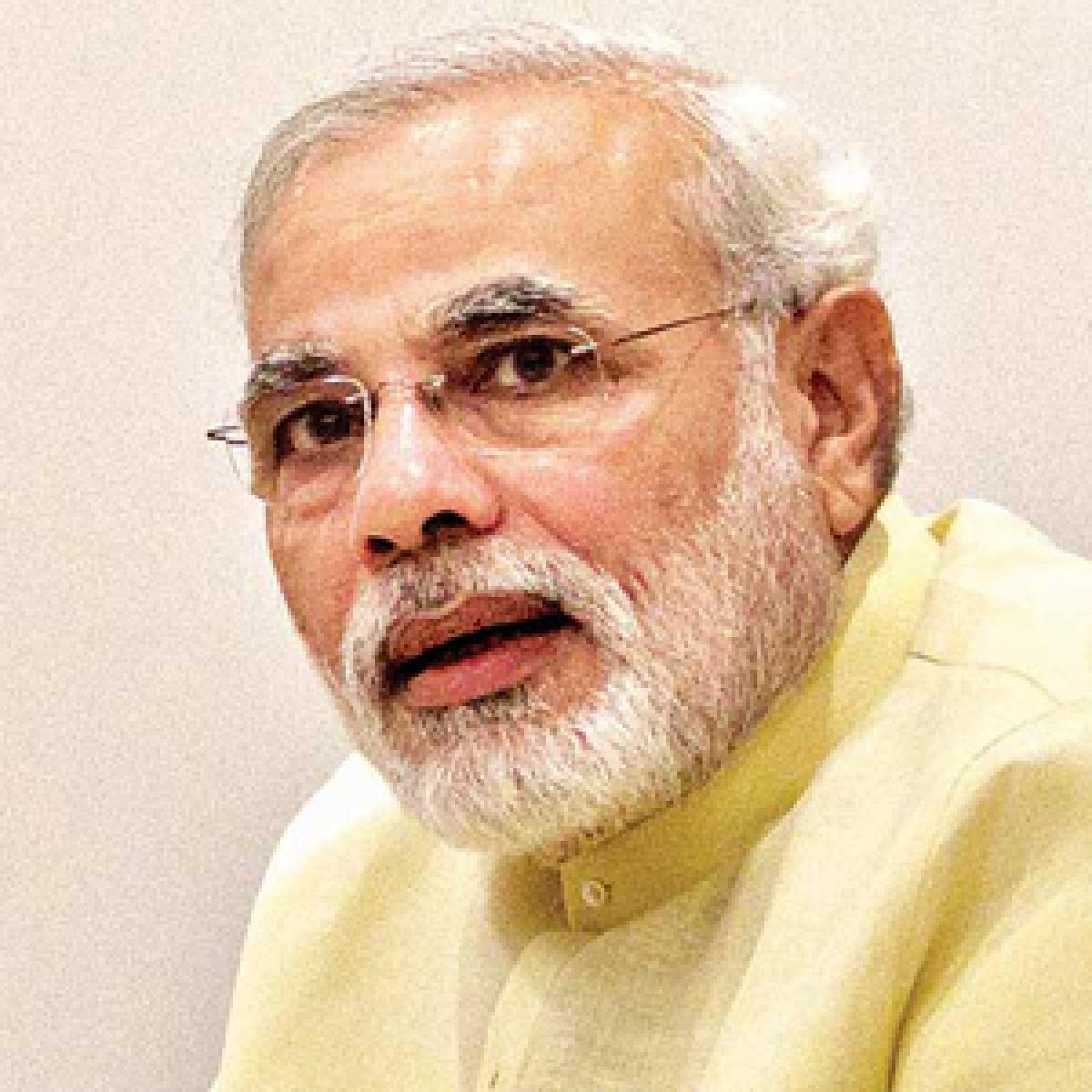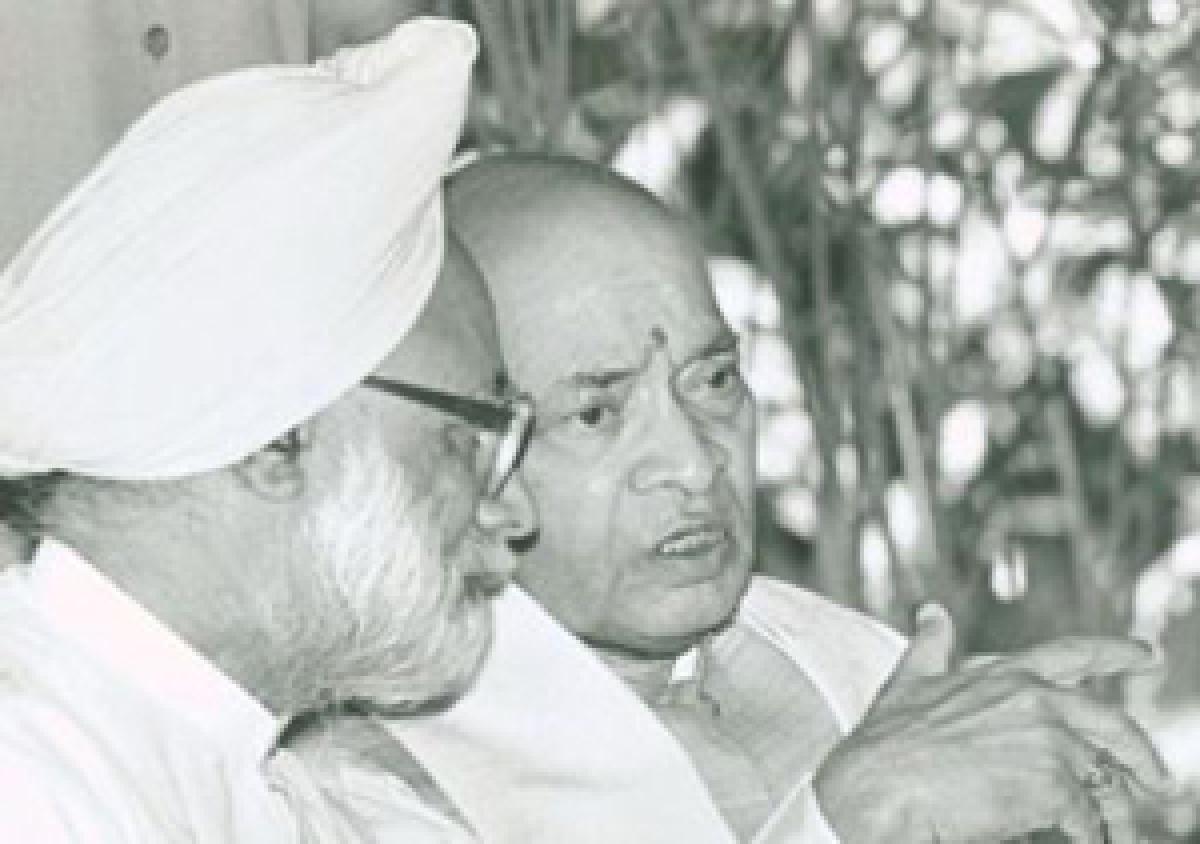Live
- Sajjala denounces Naidu’s ‘heinous politics’
- NDA parties release ‘charge sheet’ against Jagan
- Actor Nikhil Siddharth roots for TDP, takes part in campaign
- Hyderabad: Religious jingoism will not fill empty stomachs says K Chandrashekar Rao
- Hyderabad: BJP does not spare even Gods says Revanth Reddy
- Hyderabad: Will end 4% quota for Muslims in TS says Amit Shah
- Jagan failed to keep poll promises: Sharmila
- Beware of Jagan’s dramas, cautions Naidu
- Hyderabad: Ghose panel to quiz KCR
- Viveka Murder: Avinash innocent, asserts Jagan
Just In

Modi needs to emulate harbinger of reforms. There is no doubt about former Union Minister and senior Congress leader Jairam Ramesh being close to the Nehru-Gandhi family.
 Jairam Ramesh’s praise for P V Narasimha Rao in his latest book, “To the Brink and Back,” should be seen as an attempt by a supporter of economic reforms to put in perspective how and under what circumstances they were launched. While Jairam has dwelt on management of the economy that was in bad shape and its reforms, the challenges came from all directions. The opposition came from both the Right and the Left. There was little support to reforms even within the Congress and Rao’s council of ministers. It is a tribute to PVN's political skills and sagacity that he launched reforms while heading a minority government, and went on to complete his five-year term in office. Today, Prime Minister Narendra Modi needs the skills and wisdom of Narasimha Rao to get the Parliament to pass the land laws, the GST bill and labour laws for India to take the next big leap
Jairam Ramesh’s praise for P V Narasimha Rao in his latest book, “To the Brink and Back,” should be seen as an attempt by a supporter of economic reforms to put in perspective how and under what circumstances they were launched. While Jairam has dwelt on management of the economy that was in bad shape and its reforms, the challenges came from all directions. The opposition came from both the Right and the Left. There was little support to reforms even within the Congress and Rao’s council of ministers. It is a tribute to PVN's political skills and sagacity that he launched reforms while heading a minority government, and went on to complete his five-year term in office. Today, Prime Minister Narendra Modi needs the skills and wisdom of Narasimha Rao to get the Parliament to pass the land laws, the GST bill and labour laws for India to take the next big leap
There is no doubt about former Union Minister and senior Congress leader Jairam Ramesh being close to the Nehru-Gandhi family. And there has never been any doubt about his being inducted in the government of late Prime Minister P V Narasimha Ro as the eyes and ears of party chief Sonia Gandhi. Not ready to join politics after Rajiv Gandhi’s assassination, Sonia felt it necessary to place her nominees in the new government to guard the family’s interests and Jairam was one of the key persons.
His praising Narasimha Rao in his latest book, “To the Brink and Back,” should be seen as an attempt by a supporter of economic reforms to put in perspective how and under what circumstances they were launched. A scholarly account of an economist, an insider and that too a Congressman would be read with interest in the context of the prevailing conditions, the challenges and how successive governments in the last 24 years have fared on this score.
For, both the reforms and the political discourse surrounding them are a continuing process. The just-shelved attempt at legislating over land acquisition is a case in point. One might speculate that through this assessment in the book, Jairam may be reflecting the changed or changing assessment of Narasimha Rao’s contribution to the nation in the eyes of the party’s first family, but there is no indication about that. Any thought on that would be wishful thinking.
Jairam’s erudition on a range of subjects is known and, hence, his assessment of Narasimha Rao’s first phase as the Prime Minister, although coming after 24 years, needs to be taken seriously. He has called Rao India’s Deng Xiaoping. It augurs well that a sensible Congressman is paying a handsome compliment to the man who initiated the economic reforms. The beginner earns the opprobrium, but should also get the credit. Since 1991, India's gross domestic product (GDP) has quadrupled and will be $5 trillion by 2020.
Its foreign exchange reserves have surged from a paltry $5.8 billion to over $350 billion today. Rao’s description as India’s Deng Xiaoping is apt in that the Indian reforms had been long overdue and were undertaken only after the Soviet Union’s disintegration, triggering a global challenge in which India was placed in a unique disadvantage. A traditional politician, Narasimha Rao showed the courage of conviction to push reforms. China had launched them in 1978 and this 12-year lead has proved crucial.
That surge has continued, making China, despite its current crisis, a major global economy. That there are frequent comparisons today, mostly unfavourable though, between China and India, is thanks to the belated start Narasimha Rao gave. Those were surely difficult times. While Jairam has dwelt on management of the economy that was in bad shape and its reforms, the challenges came from all directions.
It is a tribute to PVN's political skills and sagacity that he launched reforms while heading a minority government, and went on to complete his five-year term in office. Jairam has called him “master technician” and ‘magnificent’ in the way he met the challenges his times. He has rightly surmised that but for these efforts, India would have fared well in the 1990s and survived the “Greek Tragedy 2015.”
Jairam is right in saying that Narasimha Rao’s “masterstroke’ was to appoint Dr Manmohan Singh as his Finance Minister. Rao needed a non-political person who would understand the nuts and bolts of the economy. He had to choose between Dr I G Patel and Dr Singh. When Patel declined for personal reasons, Rao opted for the latter. "To borrow an analogy from Isaiah Berlin, if Manmohan Singh was the hedgehog who knew only one big thing and that is economic reforms, Rao was the fox who knew many things.
It is the fox-hedgehog combine that rescued India in perhaps its darkest moment," Jairam says in his book. "There is no doubt that Rao was navigating India through a most troubled period ... I have to say that he was simply magnificent ... From the outset, Rao proved everybody wrong. A man who famously remarked, 'even not taking a decision is a decision' was remarkably decisive in the initial months," Jairam writes. "...quick decisions were taken, by being exceedingly crafty as well as bold...he (Rao) propelled change.”
When the economic reforms were unveiled, the then Opposition unanimously and vociferously said that the Congress had not received the electoral mandate, a truncated one without a simple majority in the Lok Sabha, that mandate was not for ushering in the economic changes that were being initiated. The opposition came from both the Right and the Left. While the Left saw a tilt towards the West and the private enterprise, the Right could not comprehend them then, viewing them only from narrow nationalistic prism.
There was little support to reforms even within the Congress and Rao’s council of ministers. With few exceptions, the hardcore politicos viewed everything through in terms of votes and vote banks. At least, two cabinet ministers shared their serious doubts with me. They were convinced that the reforms would weaken the government and that the party would have serious problems going back to the electorate.
The era of specialists in the government had not arrived yet. Leaving out the likes of Dr V K R V Rao, T A Pai and Dr K L Rao with whom Indira Gandhi was comfortable, Dr Manmohan Singh was a pioneer among the specialists who joined the government. Rao handled well the dramatic rupee devaluations. Although he preferred it at one go and Manmohan Singh did it in two, Rao defended it aggressively, both in Parliament and outside.
It took less than 10 hours for Rao and Singh to approve the trade policy announced by P Chidambaram, despite opposition from other ministers. The decision to transfer 46.91 tonnes of gold to the Bank of England was equally quick. Jairam recalls how Narasimha Rao used Parliament to defend his measures and backing Manmohan Singh to the hilt and the Congress Parliamentary party to allow the members to let the steam off.
For someone who was not considered a political heavyweight and given the perception that he talked less, this was not easy. Above all, he was not a Nehru-Gandhi. Today, Prime Minister Narendra Modi needs the skills and wisdom of a Narasimha Rao to get the Parliament to pass the land laws, the GST bill and labour laws for India to take the next big leap. The question is: Is there a leader of Rao's wisdom and skills in Indian politics today?

© 2024 Hyderabad Media House Limited/The Hans India. All rights reserved. Powered by hocalwire.com







